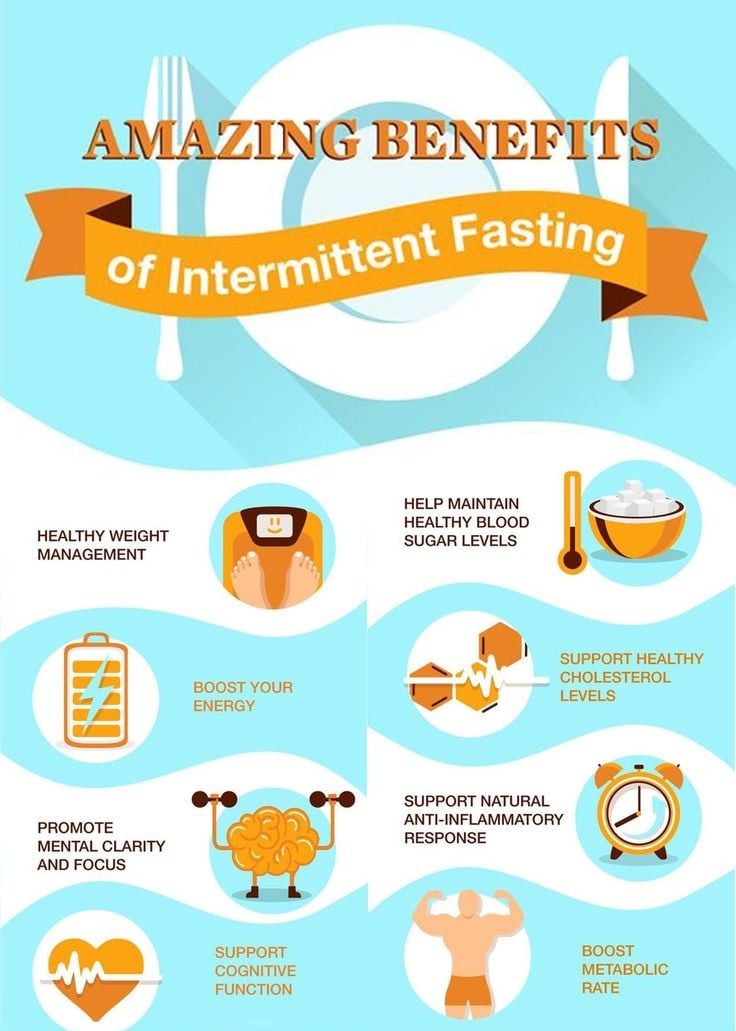PUBLISHED
December 24, 2024
Intermittent fasting has become one of the most popular dietary trends in recent years. But is it just a passing fad, or is there real science behind its health benefits?
Whether you’re looking to shed some pounds, improve your metabolic health, or simply give your digestive system a break, intermittent fasting may be worth exploring.
However, before jumping on the bandwagon, it’s essential to understand both the benefits and the potential risks associated with this eating pattern.
What is Intermittent Fasting?
Intermittent fasting isn’t a diet in the traditional sense—it’s more of an eating pattern. Rather than focusing on what you eat, intermittent fasting focuses on when you eat. It involves alternating cycles of eating and fasting.
The most common methods include the 16/8 method (fasting for 16 hours, eating during an 8-hour window), the 5:2 method (eating normally five days a week and limiting calorie intake to about 500-600 calories on two non-consecutive days), and alternate-day fasting.
The Benefits of Intermittent Fasting
Intermittent fasting has been associated with numerous health benefits. Let’s take a closer look at some of the most well-researched advantages:
Weight Loss:
One of the primary reasons people turn to intermittent fasting is weight loss. By restricting the eating window, it naturally reduces calorie intake. Additionally, fasting periods may increase the body’s ability to burn fat for energy, especially during longer fasts.
Improved Metabolic Health:
Studies have shown that intermittent fasting may help improve insulin sensitivity, which can lower the risk of type 2 diabetes. It also helps regulate blood sugar levels and improves lipid profiles by lowering bad cholesterol levels.
Cellular Repair and Longevity:
Fasting triggers a process called autophagy, where the body cleans out old or dysfunctional cells, essentially rejuvenating tissues. Some studies suggest that autophagy can extend lifespan by reducing the risk of age-related diseases, though more research is needed in this area.
Reduced Inflammation:
Chronic inflammation is linked to a range of diseases, including heart disease and cancer. Some research suggests that intermittent fasting can lower markers of inflammation, potentially contributing to better overall health.
Improved Brain Function:
Fasting can boost the production of brain-derived neurotrophic factor (BDNF), a protein that supports brain health. It may help protect against neurodegenerative diseases like Alzheimer’s and improve cognitive function.
The Risks of Intermittent Fasting
While intermittent fasting has clear benefits, it’s not without its risks. Here are some potential downsides to keep in mind:
Nutrient Deficiency:
Restricting the eating window might result in not consuming enough vitamins and minerals, especially if you aren’t mindful of your food choices. It’s important to focus on nutrient-dense, whole foods during your eating periods.
Hormonal Imbalance:
For women, fasting may affect hormonal balance, particularly if it’s practiced too aggressively. Some women may experience disrupted menstrual cycles or other hormonal disturbances. It’s advisable to listen to your body and avoid extreme fasting patterns if you’re experiencing these issues.
Potential for Overeating:
Intermittent fasting can sometimes lead to overeating during eating windows, as some individuals may feel the need to compensate for fasting periods. This can undo the calorie deficit created by fasting and possibly lead to unhealthy eating habits.
Not Suitable for Everyone:
IF may not be appropriate for certain populations, including people with a history of eating disorders, pregnant or breastfeeding women, and those with certain health conditions. It’s always best to consult with a healthcare professional before beginning any fasting regimen.
Mental Fog and Energy Slumps:
Some people report feeling sluggish, irritable, or experiencing difficulty concentrating during fasting periods, especially when first starting intermittent fasting. This is often temporary but can be discouraging for some individuals.
4. Tips for Starting Intermittent Fasting
If you’re considering intermittent fasting, here are a few tips to help you get started:
Start Slowly:
If you’re new to fasting, try starting with a shorter fasting window (e.g., 12 hours) and gradually increase it as your body adjusts.
Stay Hydrated:
It’s essential to drink plenty of water throughout the day, especially during fasting periods, to stay hydrated and avoid headaches.
Prioritize Whole Foods:
During your eating windows, focus on nutrient-rich, whole foods like lean proteins, vegetables, fruits, whole grains, and healthy fats to make the most of your meals.
Be Flexible:
Listen to your body and adjust your fasting schedule as needed. If you feel excessively tired or experience negative side effects, it may be worth reducing the fasting period or trying a different approach.
Consult with a Professional: Before starting any fasting regimen, particularly if you have a pre-existing medical condition, it’s important to consult with a healthcare provider or nutritionist.
Intermittent fasting can be an effective approach for improving your overall health, managing weight, and enhancing longevity, but it’s not a one-size-fits-all solution. It’s important to weigh the benefits against the risks and consider whether this eating pattern aligns with your lifestyle and health goals.
As with any significant dietary change, be sure to listen to your body and consult with a professional if necessary. Intermittent fasting can offer great potential for those who approach it mindfully and make it work for their individual needs.








